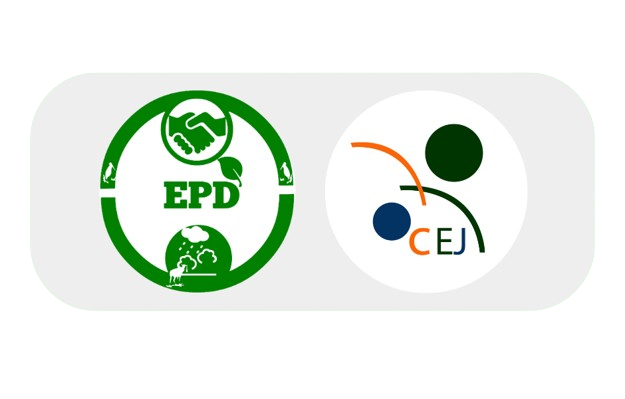Environmental Protection Dialogue - EPD
An environmental accountability space for all sectors aimed at co-creating solutions for key environmental challenges through effective dialogue.
2026 Environmental Protection Dialogue, 14th to 16th October, 2026 Environmental protection isn’t a burden but a source of innovation We must aim to take action in line with the principles of environmental justice Strong actions for environmental sustainability Community Rights, Environmental Rights, Human Rights Environmental Enforcement & Compliance Together We Can.
The Centre for Environment Justice (CEJ) with its associated partners has hosted four Environmental Protection Dialogues (EPDs) between 2020 and 2023 on various issues relating to management and protection of the environment. The EPD is an environmental accountability space for multiple stakeholders aimed at co-creating solutions to our environmental problems; deliberate upon issues surrounding environmental policy, plans, mechanisms and frameworks, as well as capacity to attain set national objectives, implement actions on environmental protection in all sector and enhanced policy dialogue for improved decision making at national level; and finding win-win solutions that can address both environmental challenges and wellbeing of our communities and sustained exchange of experiences and information on how we can safeguard the environment while enhancing people’s livelihoods.
The Zambian government through the Ministry of Green Economy and Environment has played a crucial role in hosting and supporting these dialogues in collaboration with CEJ. This is done in line with the thirteen principles of environmental and natural resources management and development specified under Article 255 of the Zambian Constitution, which also provides for the protection and management of the environment and utilization of natural resources.
The EPDs have attracted participation from government line ministries, civil society organisations, private sector, UN agencies, foreign dignitaries, traditional leaders, community-based organisations, faith-based organisations, civil leaders, environmental legal practitioners, environmental activists, academia, youth and women associations, and the media. Participation in the EDPs has increased over the years from 200 attendees at its inauguration in 2020 to 400 participants in 2023.
The EPDs have focused on several critical environmental topics including:
- Promotion of ecosystem restoration, sustainable energy and climate resilience.
- Land-based investments, environmental governance, climate policy and financing in Zambia.
- Environmental laws and regulations; community environmental justice and rights; environmental monitoring mechanisms; and traditional leaders’ roles in conservation.
- Protection of mining communities’ water rights and community land rights; upholding and implementation of resettlement policies, and strengthening mining companies’ compliance with investment agreements and enforcement.
- Enhancing and sustaining of mining communities’ alternative livelihoods, minimising/reducing mining impacts on protected areas, enhancing corporate social and environmental responsibility and protection of heritage sites.
Additionally, in 2022, CEJ initiated the Traditional Leader Caucus (TLC) as a side event of EPDs, which is a space for chiefs and chieftainess to discuss issues patterning to land laws, environmental governance and mineral resource management. CEJ recognises the pivotal role of traditional leaders in ensuring environmental sustainability. It is noted in this regard that out of the country’s total land area of 75.3 million hectares, traditional leaders are custodians of the forested areas with an expanse of between 39 to 50 million hectares. Traditional leaders are custodians of local traditions, knowledge, cultural values and they possess a deep understanding and invaluable insights into these matters. In addition, these revered figures have significant influence on their communities. It is envisaged therefore, that the involvement and active participation of traditional leaders in CEJ’s projects will not only inspire community members but will also facilitate integration of sustainable practices into the daily lives of members of their communities. By engaging traditional leaders, CEJ aims to build a bridge between ancestral wisdom and modern environmental stewardship. CEJ has since hosted successfully two TLCs as follows:
- The first TLC held alongside EPD2022 was attended by fifteen (15) traditional leaders with the overall goal of strengthening traditional leaders’ role in land-based investments in Zambia.
- The second TLC held alongside EPD2023 was attended by twelve (12) traditional leaders with the overall goal to foster traditional leaders’ role in optimising carbon financing in Zambia.
CEJ have since developed the Implementation Strategy for the resolutions of EPD2020, 2021, 2022 & 2023. CEJ calls upon cooperating partners, funding agencies, foundations and nature loves to fund and support the implementation of the EPD Strategy. Request for the strategy: programmes@cejzambia.org
EPD2024
Strengthening Environmental Law for Thriving Communities.
EPD2023
Environmental Equity and Equal Protection.
EPD2022
Strong Actions to Environmental Sustainability.
EPD2021
Better Policy Decision for Forest Ecosystem, Sustainable Energy & Climate Action.
EPD2020
Towards a Sustainable Mining Sector in Zambia through Green Investment for Nature and People.

